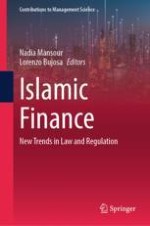2024 | OriginalPaper | Chapter
Student Performance in Mathematics and its Impact on Learning STEM Subjects
Authors : Ahmad Zamri Khairani, Nor Asniza Ishak, Izazol Idris, Hasni Shamsuddin
Published in: Islamic Finance
Publisher: Springer Nature Switzerland
Activate our intelligent search to find suitable subject content or patents.
Select sections of text to find matching patents with Artificial Intelligence. powered by
Select sections of text to find additional relevant content using AI-assisted search. powered by
